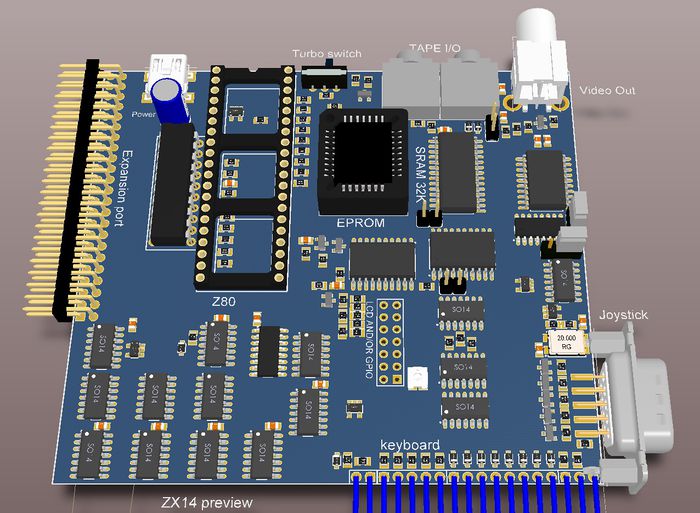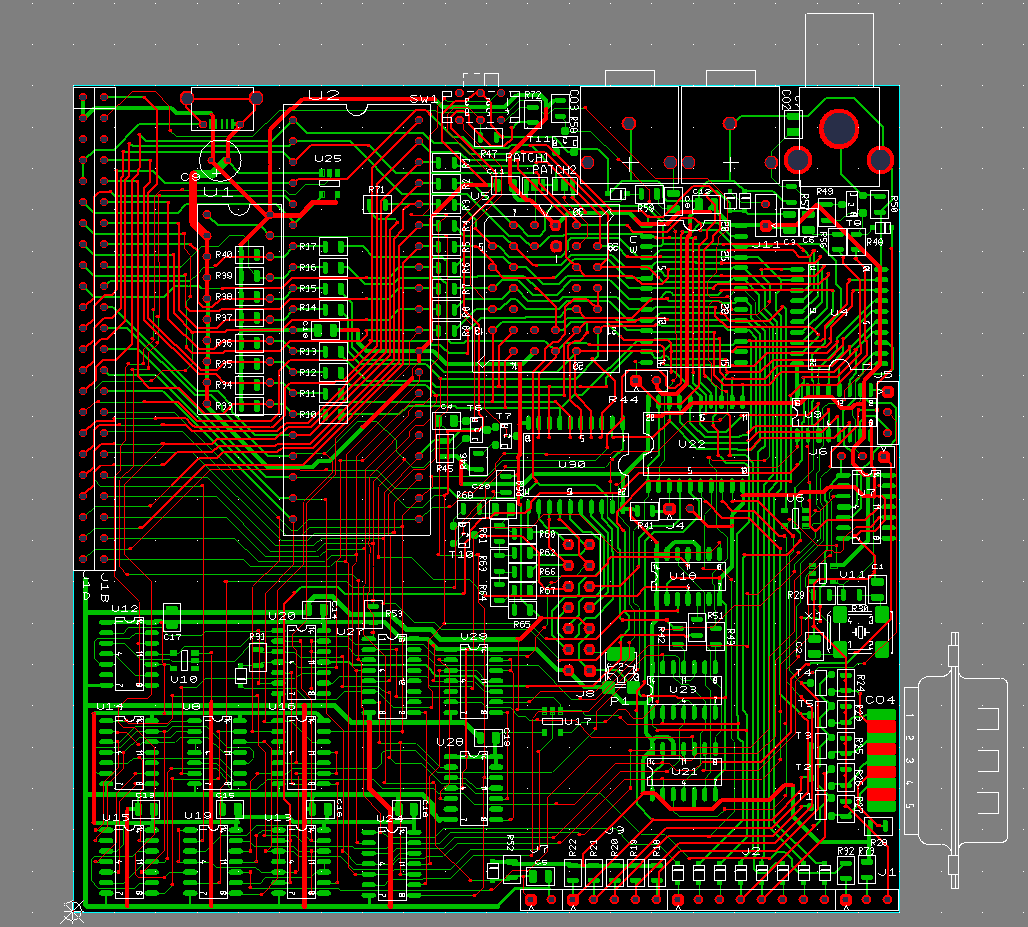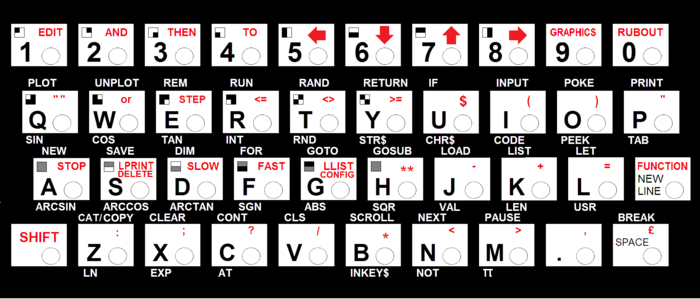ZX81PLUS35 ZX81 clone
The ZX14 (now called the ZX15 retro homecomputer) is a much improved Sinclair ZX81 [1] clone built with the modern materials techniques and components of 2015.
it will be fully open sourced effort (but note that the original design of the zx81 is still owned by Amstrad)
As for now comments and questions on the design can be made here [2] (raspberry PI forum off topic section) :-)
3D Preview
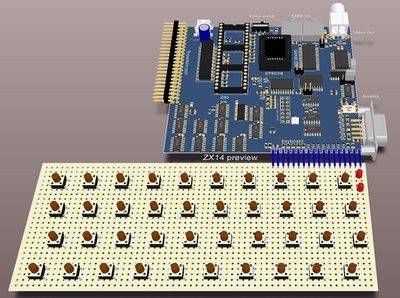
Here is a (3D rendered) preview of the main ZX14 board, to the right a small preview of the complete system,.
Schematic
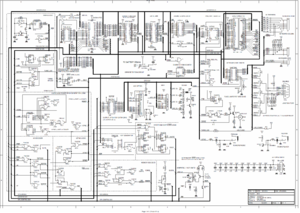
the latest schematic can be found here:
A small preview of it can be found on the right, click on it for a somewhat larger version:
there is also a color coded schematic (.PDF), it can be found here:
File:Color coded ZX14 schematic with eprom support.pdf
note that SMT components are depicted purple, and PTH ones green.
Layout
Even though I was hospitalized, then immobilized for several months (in the months of June July and August 2014) due to an operation on my leg, I still managed to work a bit on the layout of the ZX14, its not finished yet, but here is a preview of how the work is progressing. As of November 25, 2014. routing is now 100% finished, clean-up, optimizing and copper filling will follow. Picture below is actually a screen shot from a gerber viewer.
Cleanup is now completely ready, and so this is a picture of how the PCB will look like, when it is finished.
It will be beginning of 2015 before I will start building and testing prototypes. I have also re-reconsidered the name, and instead of ZX14+34, as previous it will now be called the ZX15, which is also what will be printed on the PCB, so the silkscreen will be change.
Reason being that zx81+34 is simply too silly a name, it was only chosen because of kawasaki ZX-15 motors, (which have computers inside) and because I wanted a link with the ZX81 in the name.
But ZX15 homecomputer will be its final?! name.... or perhaps ZX2015 sigh.... choices choices...
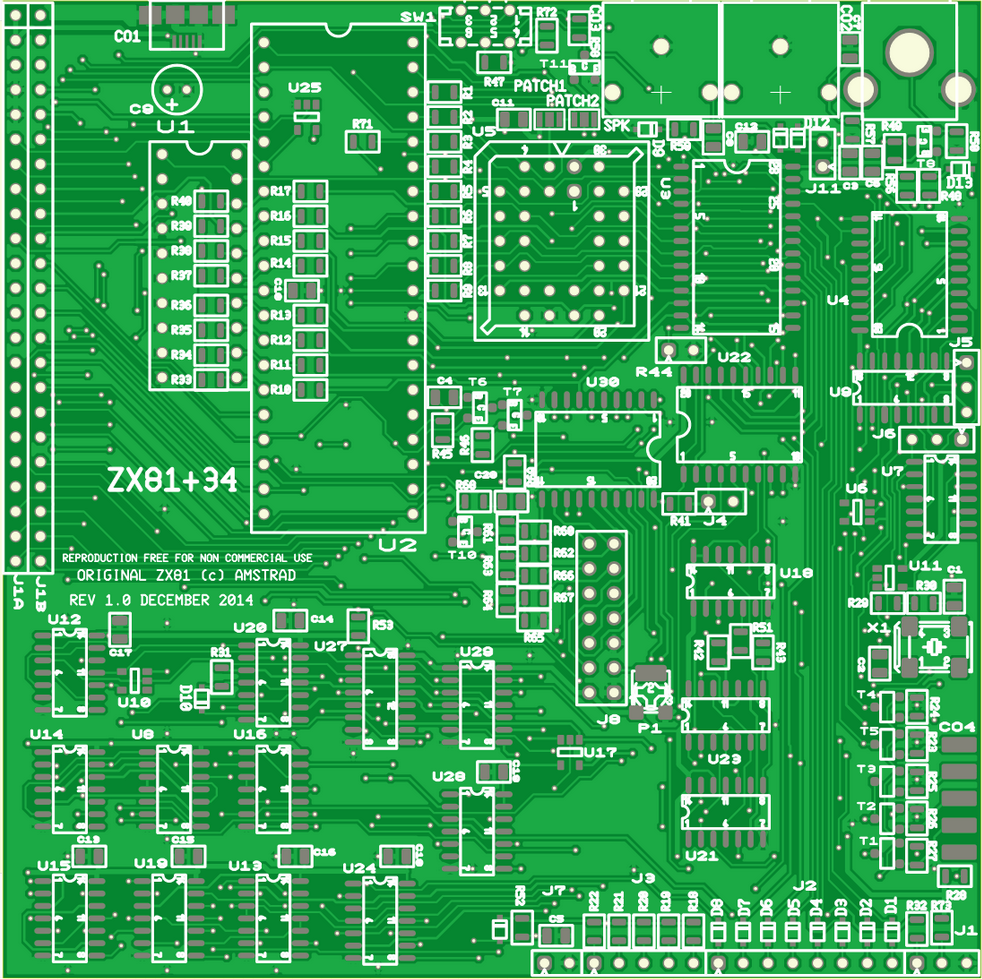
Keyboard
I have also been busy designing a solution for the keyboard. My solution is to use commercially available cheap 6x6mm buttons, which (with some effort by bending the pins a bit) can be mounted on an EuroCard sized piece of 1/10"raster perfboard, the result would like something like the picture on the left.
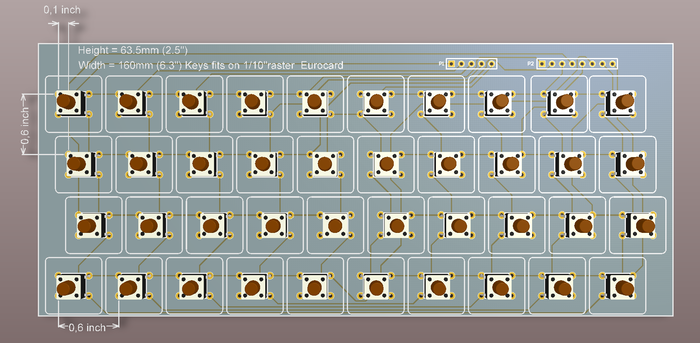
Here is the schematic of the keyboard: File:KB matrix schematic.pdf
I also designed a new keyboard overlay suitable for such a keyboard with the keys going through holes in the overlay. Here is a drawing showing how it would look:
Here is a .PDF version that should be correctly scaled when printed on A4 paper.
